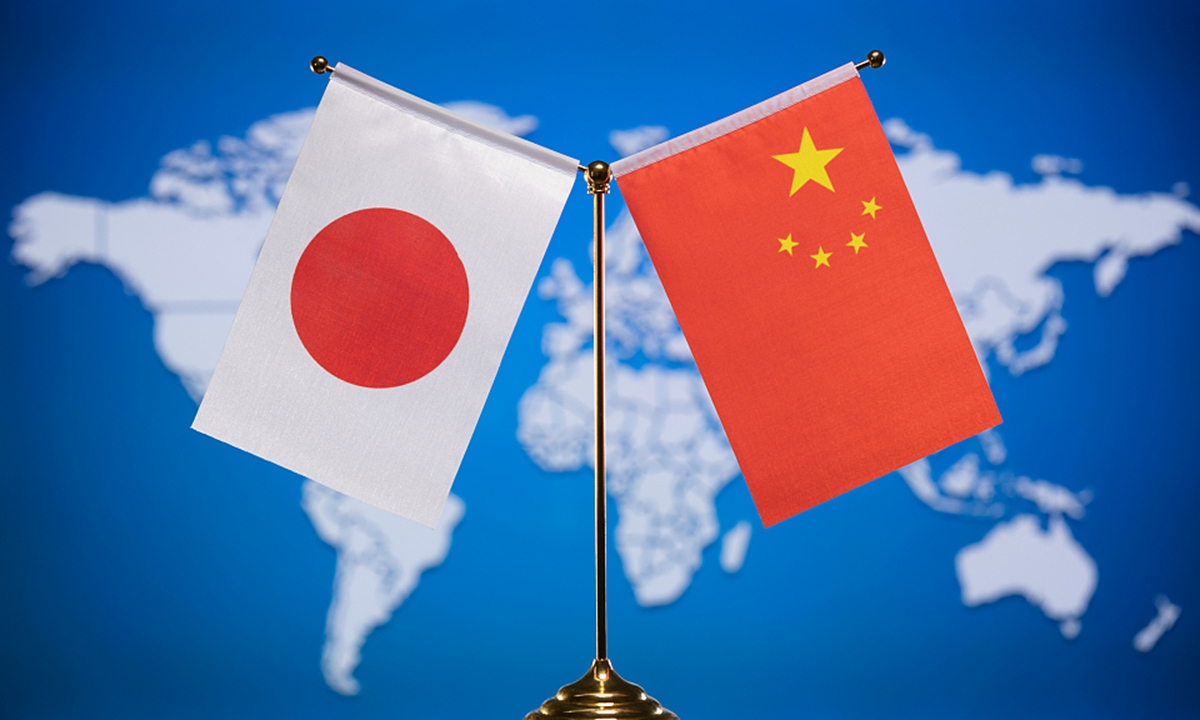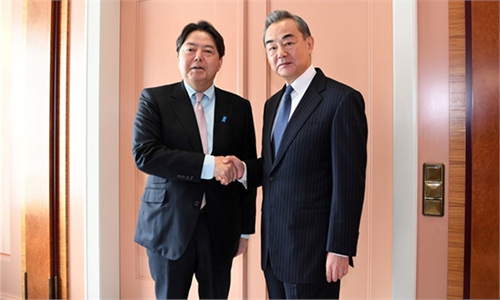China, Japan security dialogue mired by Tokyo’s close links to US’ anti-China strategy

China-Japan Photo: VCG
Chinese analysts said that the bilateral security dialogue between China and Japan, which will start on Wednesday, could be mired by Tokyo's recent provocations and deeds over the balloon row and the Taiwan question as the country has been blindly following US' anti-China Indo-Pacific strategy.According to Chinese Foreign Ministry spokesperson Wang Wenbin on Monday, Chinese Vice Foreign Minister Sun Weidong will hold the 17th China-Japan security dialogue and the 29th regular diplomatic consultation with Japanese Senior Deputy Minister for Foreign Affairs Shigeo Yamada.
Issues of common concern are expected addressed during the meeting - a once-regular fixture which has not been held since 2019. Potential topics in the dialogue include Japan's long-term policy guidelines in its new National Security Strategy, which was updated in December 2022, and the situation over the Taiwan region, Japanese media reported, citing a government source.
The dialogue comes amid Japan's move of scaling up its defense forces, the industrial high-tech blockade against China, which includes semiconductors, and more provocative statements related to the Taiwan question.
The talks will not provide an immediate solution to old and new intractable problems between China and Japan, but they will promote mutual trust and provide a platform to manage divergences and prevent them from escalating into conflict, according to Da Zhigang, director of the Institute of Northeast Asian Studies at Heilongjiang Provincial Academy of Social Sciences.
The meeting also comes after Japan's accusation from its defense ministry that it "strongly suspects" that objects which flew over Japan in 2019, 2020 and 2021 were Chinese balloons. Chinese analysts viewed the accusation as the latest demonstration of Tokyo's political game to coordinate with the US' hypes of the balloon incident.
Although the exchange could help manage divergences and prevent them from escalating into conflict, Chinese analysts said that the huge gap between China and Japan on a political level would be a major obstacle for the dialogue, as Japan intends to make China submit to the so-called international order based on US dominance, while neglecting China's goodwill in building a mutually beneficial, good partnership with Japan.
Japanese Prime Minister Fumio Kishida on Monday pledged to offer Ukraine fresh financial support worth $5.5 billion, on the top of that it has already provided Ukraine with financial support worth $600 million along with hundreds of millions of dollars' worth of emergency humanitarian assistance.
Given that the Kishida administration has been increasingly attempting to justify its ongoing militarization under the pretext of the so-called external threats amid the Ukraine crisis, Japan's strengthening of support to Ukraine could be seen as efforts to keep up with US-led NATO and to sell the provocative saying of "a Taiwan emergency is a Japanese emergency," by falsely comparing the Ukraine crisis to the cross-Straits situations, Chinese analysts warned.
Taiwan Island is a province and an inalienable part of China. It is nothing like Ukraine. However, Japan should be alert to prevent turning itself into "Ukraine of Asia" if it blindly follows the US' strategic line and acts as an US proxy to contain China, at the risk of undermining its own interests, Song Zhongping, military expert and TV commentator, told the Global Times on Tuesday.
Japan should correct its political stance and be aware that it is an Asian country not a Western country. Japan is China's close neighbor and the country should realize that the two countries share more common ground and Japan should be refrained from becoming a US pawn in containing China, Song noted.


